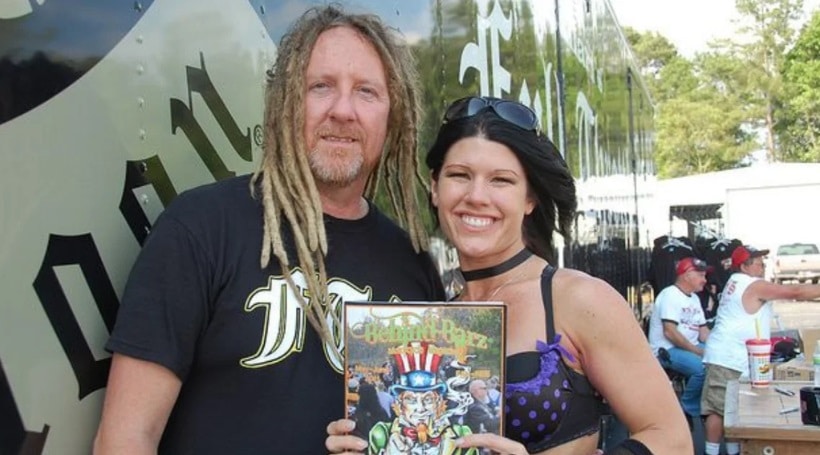Last Updated on January 1, 2025
Survival stories captivate our imagination, often highlighting the raw power of human determination. However, what happens after the cameras stop rolling and survivors return to their everyday lives? For survival couples—partners who have endured life-threatening situations together—the wilderness may test their physical limits, but the real challenge often begins once they return to “normal” life. This article explores the unique dynamics, struggles, and triumphs of survival couples as they navigate life beyond the wilderness.
The Psychological Toll of Survival
Surviving harrowing conditions can leave couples with deep emotional scars. While the shared experience often forges an unbreakable bond, the psychological toll of survival presents significant challenges.
Trauma and Its Aftermath
Survival situations frequently result in post-traumatic stress disorder (PTSD), anxiety, or depression. For couples, this shared trauma can manifest in different ways—some find solace in each other’s understanding, while others struggle to cope with their partner’s emotional pain. One partner may relive the experience through nightmares, while the other might suppress emotions to appear strong. These conflicting coping mechanisms can lead to feelings of isolation even within the relationship.
Communication Barriers
Survival often requires quick decisions, with little time for emotional processing. Post-survival, couples may find it difficult to discuss their experiences openly. The emotions tied to life-threatening events—fear, guilt, or even relief—are complex, and talking about them can feel like reopening wounds. This lack of communication can strain relationships and make recovery even harder.
Reintegrating into Society
Returning to everyday life after surviving extreme conditions can feel like an entirely new challenge. Society’s expectations and the pressures of reintegration often highlight the differences between life during and after survival.
Cultural and Social Isolation
Survivors frequently feel disconnected from those who have not endured similar challenges. Friends and family, while well-meaning, may struggle to understand the depth of their experience. For couples, this isolation can either bring them closer together or make them feel like they’re navigating an unrelatable world alone.
Career and Financial Challenges
Rebuilding a life often includes addressing career and financial instability. Survival situations can interrupt careers, lead to job loss, or create significant financial strain. Some couples turn to monetizing their survival stories—through books, speaking engagements, or documentaries—but this path can also add stress, as it requires reliving their trauma repeatedly.
Shift in Relationship Dynamics
Survival often forces couples into new roles and relationships, which may linger long after the experience ends.
Role Reversals
In life-threatening situations, one partner may take on a dominant role while the other becomes dependent. These roles, born of necessity, can create tension when reintegrating into regular life. The partner who once led may struggle to relinquish control, while the other may resist returning to pre-survival roles.
Power Struggles
Survival often involves tough decisions—whether to ration food, take risks, or prioritize one partner’s needs over the other. These decisions, while essential in the moment, can lead to resentment or guilt later. Couples must navigate these complex feelings, which can resurface in moments of conflict or stress.
The Media Spotlight
For many survival couples, the attention their story garners from media and the public creates additional pressure on their relationship.
Pressure of Public Scrutiny
Becoming a symbol of resilience or inspiration can feel like both an honor and a burden. Couples may feel pressured to maintain an image of perfection, even when struggling privately. The media’s portrayal of their story often glosses over the emotional and relational challenges they face.
Exploitation of Their Story
Sharing their survival story can provide financial opportunities, but it also raises ethical dilemmas. Couples must balance the benefits of sharing their experience with the emotional toll of revisiting traumatic events. Some may feel exploited by media outlets seeking sensational stories rather than focusing on the real challenges they face.
Strategies for Healing and Growth
Survival couples can overcome these challenges by prioritizing healing and growth, both individually and together.
Therapy and Counseling
Professional therapy is often essential for addressing trauma. Individual counseling helps each partner process their emotions, while couples therapy fosters open communication and understanding. Therapists can guide couples in navigating the unique dynamics that arise from surviving together.
Rebuilding Trust and Communication
Simple but intentional actions, such as setting aside time to talk, can rebuild trust and communication. Couples can benefit from structured exercises that encourage emotional honesty and vulnerability. Acknowledging each other’s pain and validating their feelings are crucial steps toward healing.
Finding Purpose Together
For many couples, survival ignites a shared sense of purpose. Whether it’s advocating for wilderness safety, writing about their experiences, or simply supporting each other’s personal goals, finding a common mission can help them move forward.
Inspirational Examples
Some survival couples emerge stronger from their experiences, providing valuable lessons for others. For example, Denise Harris and Roger Lewis, whose story inspired To Brave Alaska, faced significant challenges after their ordeal. Yet, their resilience and dedication to rebuilding their lives became a testament to the power of partnership. Their story highlights that while survival demands extraordinary courage, healing requires patience, understanding, and mutual support.
Conclusion
Surviving the wilderness is a test of physical and mental endurance, but the journey doesn’t end there. For survival couples, life beyond the wilderness presents its own set of challenges, from coping with trauma to navigating shifting dynamics and societal pressures. However, with intentional healing and a commitment to growth, these couples can transform their experiences into a source of strength and inspiration.

